Before Mike and I decided to homeschool we had lots of questions just like you. I got on Google and did lots of research. I even contacted a homeschool mom and asked her lots of questions. Here is a list of the most common homeschool questions.
Having a list of the Common Homeschool Questions all in one place helps you to decide what is best for your child or children and your family. There are so many questions about homeschooling and you may not be sure what to ask. This list was created by a homeschool mom to help with just that.
When I started researching questions, I realized that I could not find all my answers in one place. I had to search many different pages in Google to find some of the answers, but I wanted to talk to someone that had been there and done that. So I hope having all these questions in one place from a mom who has been there and done that helps.
1. What should I know before I start homeschooling?
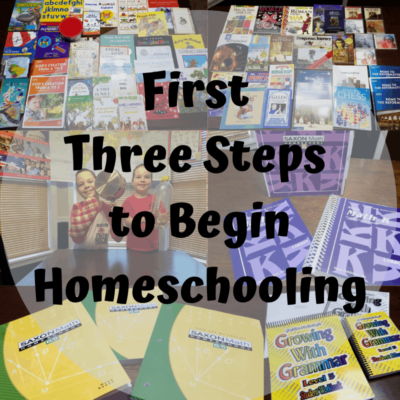
Before you start homeschooling, there are three things you need to do. First you want to find out your homeschool laws for your state. The second thing you need to do is find out which of the 10 types of homeschooling you want to do or what fits your family better. The third thing you need to do is join or find a homeschool group in your area. To learn more click here.
2. Why do parents decide to homeschool?
This questions is a hard on to answer because every family decides to homeschool for a different reason. Our decision to homeschool was a tough one that we did not make over night. Mike and I had many conversations about it and prayed about what would be the best decision for our child. We wondered could we give him the education he needed and deserved. Could we teach him the social interactions that needed? What is the best decision for our family?
After all the conversations, prayers, thoughts, questions, and talking to other homeschooling parents, we decided it would be best to homeschool. I can teach him everything he needs to know and more. I can not only teach him social interactions, I can show him how to interact with others. Homeschooling is the best decision for our family! So in 2012 I started teaching Bailey K4 and have not looked back.
3. How much does it cost to homeschool?
That is a hard questions to answer because it can cost as much or a little as you want it too. I know that sound funny, but it is the truth. When I first decided to homeschool, I looked into several homeschool curriculums. I looked into free curriculums, boxed curriculums, and some others. Here is a list of the 17 most popular homeschool curriculums:
- My Father’s World
- A Beka, Sonlight
- Bob Jones (BJU Press)
- K12
- Khan Academy
- Easy Peasy All in One Homeschool
- Alpha Omega
- Time4Leaning
- Classical Academic Press
- Acellus Power Homeschool
- Memoria Press
- Oak Meadow
- Veritas Press
- Timberdoodle
- Calvert Education
- The Good and The Beautiful.
Click here to learn more about each of the 17 most popular curriculums.
4. What curriculum do I use?

I chose to use a Christian based homeschool curriculum for my children. We use My Father’s World and I love it! It comes with all the lessons planned out for me and all worksheets needed for the lessons. I love how the Bible and God’s word is incorporated into the curriculum. My Father’s World even suggests what math and language to use for the older grades. The history curriculum was created for teaching multiple grades at once. I love My Father’s World!
I wanted to know more about My Father’s World so I contacted them to find out more about their history and this is what they sent me. “My Father’s World was founded by missionaries David and Marie Hazell. In the early 1990s, the Hazells moved to Russia to work for the Institute for Bible Translation. While living in Siberia and later in Moscow, the Hazells became involved in translating, printing, and distributing children’s Bibles, copies of the New Testament, and Bibles in many languages. Click here to learn more about My Father’s World.
5. Can I homeschool for free?
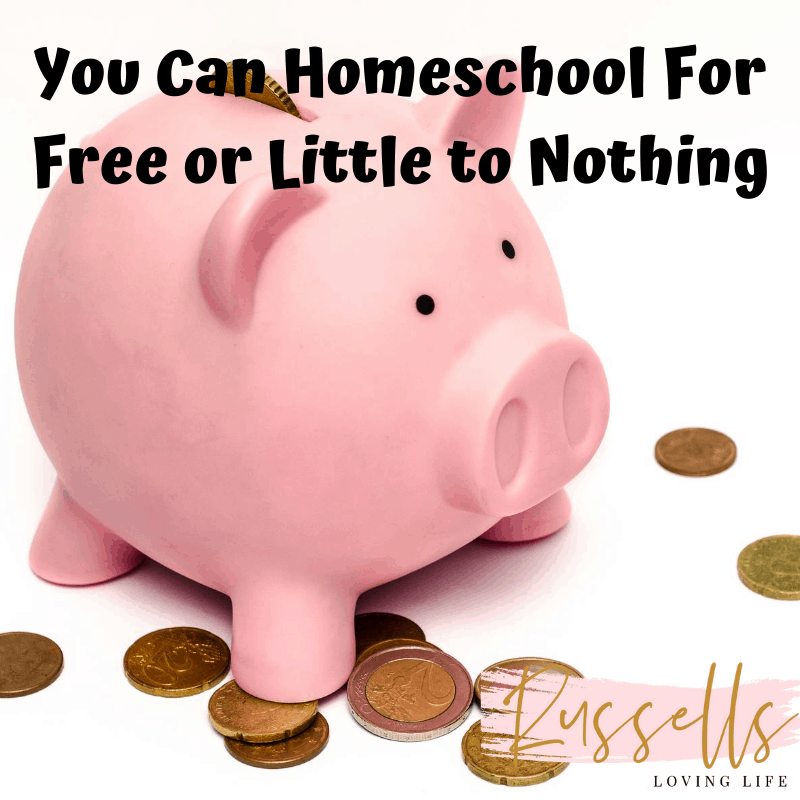
Yes, you can homeschool for free. These days there are so many free resources out there for you to use. Some of them are your local library, YouTube, free online curriculums, free printable worksheets, Google fun and interesting topics to study, borrow old homeschool books from other homeschool families and field trips. Homeschooling does not have to cost an arm and a leg. There are so many free resources out there that you can homeschool for free. Here are some that I found while doing a little research.
6. Is it Bad to Homeschooling?
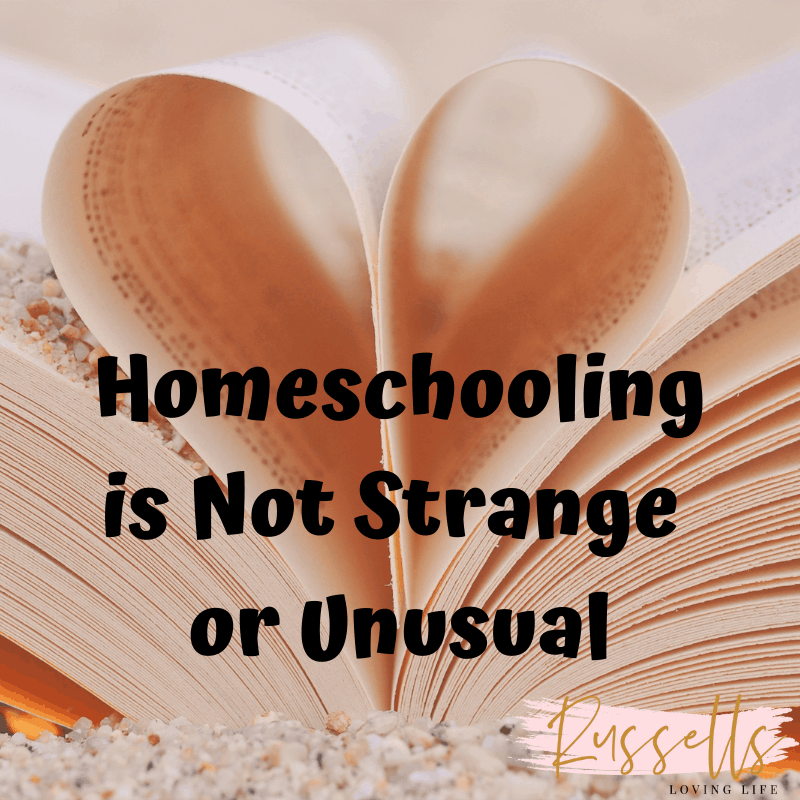
In my opinion and experience homeschooling is not a bad thing. We have a boxed curriculum that contains all subject books needed for that year and we follow all laws and regulations that are required by our state.
Sometimes homeschool can be considered a bad thing for the following reason:
- parents are not qualified to teach their children
- children are not socialized enough
- children are not actually doing school work or learning anything
According to the Coalitions for Responsible Home Education, CRHE, only a hand full of states require parent to have a high school diploma, or a GED to educate their children at home.
I can only speak from my personal experience about my children being well socialized. Both of my children have friends and do not have a problem interacting with people of any age. Bailey and Bekah both volunteered at our local food pantry at an early age. They are both very active in our church. We are also members of a local homeschool group.
7. How do I start homeschooling?
There are a few thing you need to know and do to start homeschooling. First you want to find out your homeschool laws for your state. The second thing you need to do is find out which of the 10 types of homeschooling you want to do or what fits your family better. Next you will need to select which curriculum your want to use based on the type of homeschool you will me doing. And finally, you need to join or find a homeschool group in your area. To learn more click here.
8. What certifications or qualifications do you need to homeschool?
According to the Coalition For Responsible Home Education or CRHE, most states do not require parent certifications qualifications to homeschool. But there are 11 States that require a High School Diploma, GED, College Credits, or the completions of a Homeschool Study Course.
Here are the 11 states that require qualifications for you to teach your child at home. Please make sure to check what your state’s qualifications are in the link above.
- Georgia
- New Mexico
- North Carolina
- North Dakota
- Ohio
- Pennsylvania
- South Carolina
- Tennessee
- Virginia
- Washington
- West Virginia
9. What is a Homeschool Friendly State?
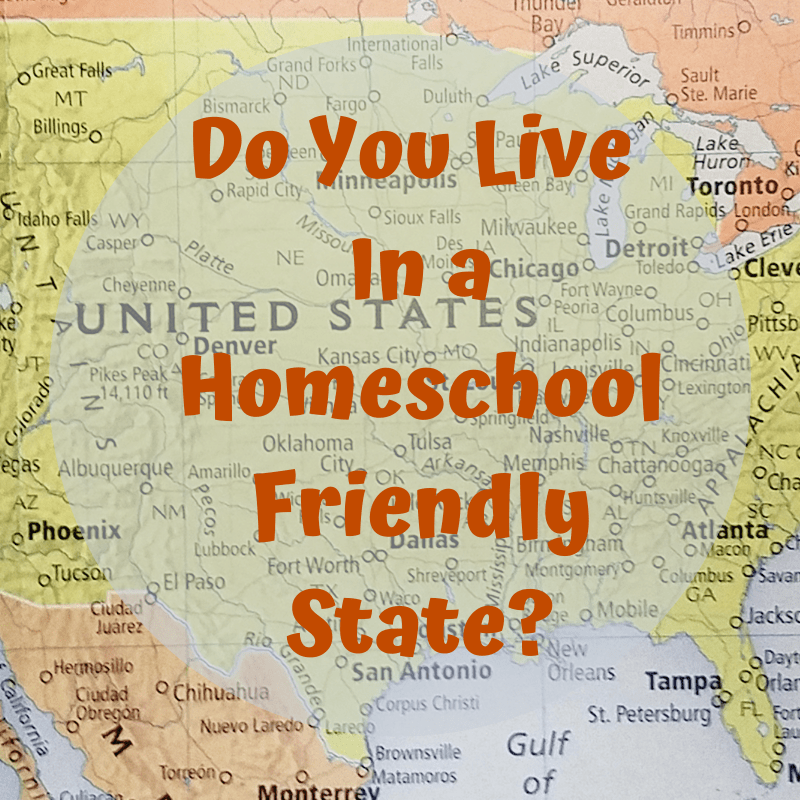
A state that is considered to be a Homeschool Friendly State is a state that has little to no regulations. Their Homeschool Law and Regulations are more laid back than other states. Homeschool Friendly States do not require parents or legal guardians to participate in home visits, standardized testing, or professional evaluations and provide test scores.
It is legal to homeschool in all 50 states, but each state sets ups their own laws and regulations. So before you start homeschooling or if you are currently homeschooling, make sure to check your state’s laws and regulations each year. Make sure to check below to see if you state is a Homeschool Friendly State.
States requiring no notice
States with low regulation
States with moderate regulation
States with high regulation
10. Which States are considered Homeschool Friendly States?
A state that is considered to be a Homeschool Friendly State is a state that has little to no regulations. Their Homeschool Law and Regulations are more laid back than other states. Homeschool Friendly States do not require parents or legal guardians to participate in home visits, standardized testing, or professional evaluations and provide test scores.
According to the HSLDA the following states are considered Homeschool Friendly States:
- Alabama – Low Regulations
- Alaska – No Notice
- Arizona – Low Regulations
- Arkansas – Low Regulations
- California – Low Regulations
- Connecticut – No Notice
- Delaware – Low Regulations
- Georgia – Low Regulations
- Idaho – No Notice
- Illinois – No Notice
- Indiana – No Notice
- Iowa – No Notice
- Kansas – Low Regulations
- Kentucky – Low Regulations
- Michigan – No Notice
- Mississippi – Low Regulations
- Missouri – No Notice
- Montana – Low Regulations
- Nebraska – Low Regulations
- Nevada – Low Regulations
- New Jersey – No Notice
- New Mexico – Low Regulations
- Oklahoma – No Notice
- Texas – No Notice
- Utah – Low Regulations
- Wisconsin – Low Regulations
- Wyoming – Low Regulations
11. What is gameschooling?
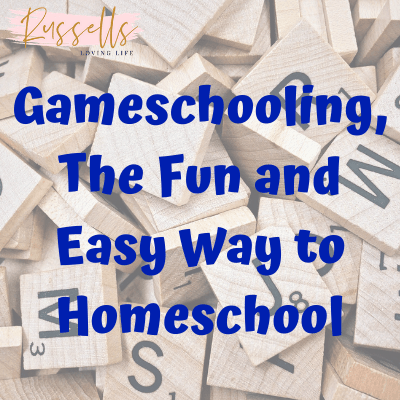
Gameschooling is when a board game is used to help a child learn a particular skill or to learn more about a subject. Gameschooling is a fun way for kids to learn more about a subject and have fun at the same time. Some homeschool families decide to game school instead of using a curriculum for a given subject. Click here to learn more.
12. What is a homeschool Co-op?

A Homeschool Co-op is basically were a group of homeschool families get together once or twice a week and work together to meet a common goal. Homeschool Co-op are generally based around academics, arts and crafts, activities, community projects, or social time. These co-ops are typically taught and lead by parents. A Homeschool co-op is also sometime referred to as a Homeschool Cooperative. Just because most Homeschool co-ops are generally laid out in the same format it does not mean that they are all the same. So you need to learn more about a homeschool co-op before you just sign up for one. Click here to learn more.
13. How does homeschooling benefit the child?
Homeschooling can benefit your child in many ways. When you homeschool, your child gets the one on one time that helps them learn. Homeschool children also get to go at their own pace. If they learn something fast they can move on or if they need more time to master a skill that is fine too. Children that are homeschooled also get the benefits of learning life skills as well as core subjects.
14. Do a lot of parents still homeschool because of religious reasons?
Some parents still homeschool their children for religious reason, but there are many other reason parents homeschool today. Some parents homeschool because of special needs. Others homeschool because the public school system is failing in there area. We use a Christian based curriculum, but that is not the only reason why we homeschool. We love the flexibility, being together as a family, learning at each child’s pace, and I could go on and on, but I’m not. Let just say that religious reasons is not the only reason parents homeschool today.
15. Is it cheaper to homeschool than to send a child to public or private school?
This is not a simple yes or no answer. There are factors that play into this answer. It depends on the curriculum that you use to homeschool. Some curriculums can cost a much as paying for private school and some can be free. The answer to this question depend on what curriculum you pick and what you decide is best for your child and family.
16. Do homeschoolers have to take standardized tests?
Some states do required homeschoolers to take standardized test. That is why is it so important to know the homeschool laws in your state. If you are not sure about the laws in your state, click here. Home School Legal Defense Association or HSLDA is a great resource. Click here to learn more about them.
17. Do homeschooled students have to take the SAT and the ACT?
Again this depends on your state’s homeschool laws, but homeschooled students that plan on attending college are required to take the SAT and/or the ACT. I would recommend checking the HSLDA website and/or contacting the college your child wishes to attend and see what they require.
18. Do you recommend homeschooling?
I highly recommend homeschooling! I know it may not be the best thing for all families, but it is great for our family. I was scared and worried at first, but with the support of other homeschooling moms I have found what works best for us.
19. How do homeschool children socialize?
The number one question I get asked when I tell people that I homeschool my children is “How do they socialize?” My normal response is, “Do you send your children to school to socialize or to learn?” My experience is that most kids do not get to socialize much at school anyway. They cannot talk during classes, in the hall, in the lunchroom and even on some school buses. They get to see kids, but are not allowed to talk much.
My children are very well socialized. Bailey and I started volunteering at a local food pantry when he was two years old and continued until 2016 when it closed. We attend homeschool events, parties, and field trips. Our homeschool group even does a yearbook. We attend events at our local library and both children are involved in sports. Bailey has been involved in a sporting activity since he was three years old. He has taken gymnastics for three years, participated in soccer for three years and is still active in taekwondo. Bailey will walk up to anyone (with us standing near by) stick his hand out to shake their hand and introduces himself. He can interact with anyone from a baby to a 100 year old. He is not shy or scared.
Bekah was at the food pantry in her baby carrier and when she started walking she would help pack boxes for the recipients. She continued to help until it closed. She has started soccer and gymnastics this year. She also attends all taekwondo events with us. So I think it is safe to say my children do not lack in the socialization department.
There are so many more options for homeschool children to socialize these days. Here is a list of some examples:
- Homeschool groups
- Homeschool Co-ops
- Library events and activities
- Church events and activities
- Volunteering
- Sports
- Field trips
- Girl Scouts
- Boy Scouts
- American Heritage Girls
- Trail Life USA
- Homeschool skate days
- Homeschool bowing days
- Local Children’s Theater
20. Do you have to have patience to homeschool?
This is another questions that homeschool families get asked a lot. Or people will say, “I do not have the patience to do that.” The best way to answer this is we all have good days and bad days. We all have some form of patience. It is up to you when and where you use it.
21. What are the homeschooling methods for new homeschoolers?
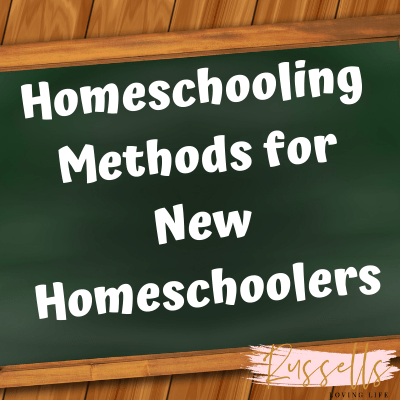
When homeschooling you do not have to fit into one of the methods. Our homeschool usually falls under a mixture of methods. I hope this helps you find what works best for your family.
I posted videos from other homeschool moms as well as one of mine to help you better understand these types. Please leave them a comment on their videos if you have any questions.
- School-at-home Homeschooling – School-at-home is when you mimic public or private schools in your home. Most new homeschooling families start with this method until they figure out what works best for them. Most of the time, when you buy an All-In-One curriculum or School in a box this is the type of method you are doing. We have used this method since we stared homeschooling and it is what works best for us, but it may not work well for everyone. We use My Father’s World curriculum and we love it!
- Classical Homeschooling – Classical homeschooling focuses on a three part process. The first part is the Grammar Stage. The Grammar Stage is when you build a basic knowledge of the core subjects like math, language arts, science and history. The second part is the Logic Stage. The Logic State is when children want to know more about a topic or subject. Children typically state asking “why”. These questions help them to reach a conclusion on their own. The Third and final part is the Abstract Stage. The Abstract or Rhetoric Stage combines their knowledge of core subjects and their ability to reach a conclusion together.
- Charlotte Mason Homeschooling – Charlotte Mason Homeschooling was developed by Charlotte Mason. She placed emphasis on literature and she even coined the phrase “Living books”. She believed in sparking the imagination of a child through subject matter. Charlotte Mason’s motto was “Education is an atmosphere, a discipline, a life.” She wanted wanted children to learn self-discipline as well as their academics. When using this method to homeschool, you will read lots of literature, explore nature outside, art, music, journalling, dictation and copywork.
- Montessori Homeschooling – Montessori is also known as Montessori Method of Education. It was developed by Maria Montessori and her method focuses on the development of children, physically, socially, emotionally, and cognitively. Parents facilitate and the child directs the learning. What I mean by this is that the parents find curriculums or material that fit their child’s interest. This encourages students to learn more about their interests. The Montessori method encourage children to pick what learning activities they want to use, have hands on activities, work at their own pace, and active learning methods.
- Unschooling Homeschooling – Unschooling is informal learning where the student learns though life experiences. “The term “unschooling” was coined in the 1970s and used by educator John Holt, widely regarded as the father of Unschooling,” according to Wikipedia. Mary Griffith, author of “The Unschooling Handbook” states, “Unschooling means learning what one wants, when one wants, in the way one wants, for one’s own reasons,”
- Unit Studies Homeschooling – Unit Studies Homeschooling is when core subjects are taught on one single topic. This method is usually used by Homeschooling families that teach different aged children at one time. Unit Studies also allow children to dive deeper into a topic. Children will usually retain more from this method.
- Eclectic Homeschooling – Eclectic Homeschooling is when you pick and choose from many different books, websites, curriculums, board games and so on to teach your children. Many homeschool families choose this method. Using this method allows you to pick what works best for each of your children. For example, just because one math curriculum works well for one of your children, does not mean it will work well with all of them.
- Gameschooling Homeschooling – Gameschooling is when a board game is used to help a child learn a particular skill or to learn more about a subject. Gameschooling is a fun way for kids to learn more about a subject and have fun at the same time. Some homeschool families decide to game school instead of using a curriculum for a given subject. Click here to see games by subject.
- Natural Learning Homeschooling – Natural Learning Homeschooling according to Wikipedia, “Natural learning” refers to a type of learning-on-demand where children pursue knowledge based on their interests and parents take an active part in facilitating activities and experiences conducive to learning but do not rely heavily on textbooks or spend much time “teaching”, looking instead for “learning moments” throughout their daily activities.
- Informal learning Homeschooling or Self-Directed Homeschooling Informal Learning Homeschooling or Self-Directed Homeschooling is learning that happens through everyday life participation and creation. Anything from planting a garden to baking a cake or even talking to a technician at work about the installation of new software can be considered informal learning are some examples from Wikipedia.
22. What are the types of learning?
Every child learns in their own way. Being a homeschool mom of more than one child I have figured that out, but I did not know what the learning styles were called until I looked in to them. This is what I learned.
- Visual Learner also known as a Spatial Learner – Visual or Spatial learners learn better by graphs, tables, charts, maps, colors, diagrams, flash cards or watching educational videos. They sometime tend to look at the big picture and miss the details.
- Aural Learner also known as an Auditory Learner – Aural or Auditory learners learn better by listening. They tend to do better is a lecture style of environment. Aural or Auditory learners also tend to learn better by engaging in conversations, listening to music and videos.
- Verbal Learner also known as an Linguistic Learner – Verbal or Linguistic learners learn best by writing or speaking. They tend to learn better by language reasoning than abstract information. Verbal or Linguistic learning are usually better at word problems then they are at solving equations.
- Physical Learner also known as a Kinesthetic Learner – Physical or Kinesthetic learners learn better through movement rather than from a lecture. They learn through body movement, control or expression.
- Logical Learner also known as a Mathematical Learner – Logical or Mathematical learners learn by problem solving, statics and facts, using numbers or their ability to reason. They usually learn by using visual, kinetic and auditory learning styles. Logical or Mathematical learners learn best in an organized space.
- Social Learner also known as an Interpersonal Learner – Social or Interpersonal learners tend to work well in a group and flourish on building relationships. They tend to communicate well through verbal and non verbal communication. Social or Interpersonal learners are also referred to as “people smart.”
- Solitary Learner also known as an Intrapersonal Learner – Solitary or Intrapersonal learners learn better when they work alone. They are self-motivated, concentrate well, and think independently. Solitary or Intrapersonal learners need a distraction free space to learn.
23. Do you get homework if your homeschooled?
If you think about it, all the school work we do at home is homework. But as of now my children are not required to do any additional school work at night. This may change as they get older and if they have trouble mastering a skill. This will differ from homeschool family to homeschool family.
24. How many hours a day do you homeschool?
This really depends on the grade level, the curriculum, and the homeschool family. For us it only takes about an hour for Bekah’s kindergarten level work and about 4 hours for Bailey doing 5th grade level. This does not include their reading time. For example, I require Bailey to read a book on his reading level for 30 mins a day or longer if he wants to. Bekah and I read a book together before she goes to bed at night.
25. What time do homeschoolers wake up?
This is different for every family. Some families have a strict schedule that they follow and other families are more flexible. For us, we typically wake up between 7:30 am and 8:00 am, eat breakfast and start our homeschool day around 9:30 am.
26. How many days a week do you homeschool?
We homeschool 4 days a week. The reason we only homeschool 4 ways a week is for the flexibility. So if we want to schedule a field trip, attend an event with our homeschool group, or if with have a doctor or dentist appointment, we can without worrying about getting all of our school work done for the week. But just know that every homeschool is different and this changes from homeschool to homeschool. When you homeschool, you do what works best for your family.
27. What is Deschooling and How to do it stress free?
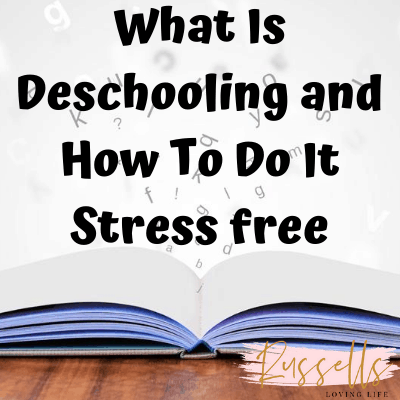
Deschooling is the transitions period for a child leaving a structured institution of learning like a public or private school and changing to a more relaxed form of schooling at home. This transition not only affects the child, but parents can also go through this as well.
This transition period can be a difficult and confusing time for both you and your child. For a child that has been in a public or private school setting, they have learned what happens and is expected of them there. But coming home for school, your child may not be sure what will happen and what is expected of them. During this period of time you and your child are both discovering the new normal.
It all boils down to patients and understanding for you and your child. This transition period will not happen over night. You will hit a few ruff patches along the way, but it will not be like this forever. Once you and your child find the new normal together things will move much smother.
28. Do Homeschoolers get sick days?
Yes we do get sick days. In our house, a little cough or sniffle does not count as being sick. To get a sick day, the kids or I have to be running fever over 100.0 and be vomiting or having tummy troubles.
29. Do Homeschoolers have friends?
Yes homeschooler have friends. Most homeschoolers have friends from different age groups as were public or private school kids have friends their own age. Homeschooled children tend to interact with other homeschooled families and all of these children range in ages. My children are friends with other homeschoolers, and have friends from church, friends from the neighborhood, and friends from extra curricular activities. We also meet homeschooled children when we go on vacations and they tend to stay in touch too.
30. Do homeschoolers wear pjs all day?
I wish I could wear my pjs all day. I stay in them as long as I can. LOL Most of the time we do our homeschool work in our pjs. But everyday we have somewhere we have to go. We usually have errands to run, take a trip to the library, go to karate, gymnastics or play outside. This is also one of those things that differs from family to family.
